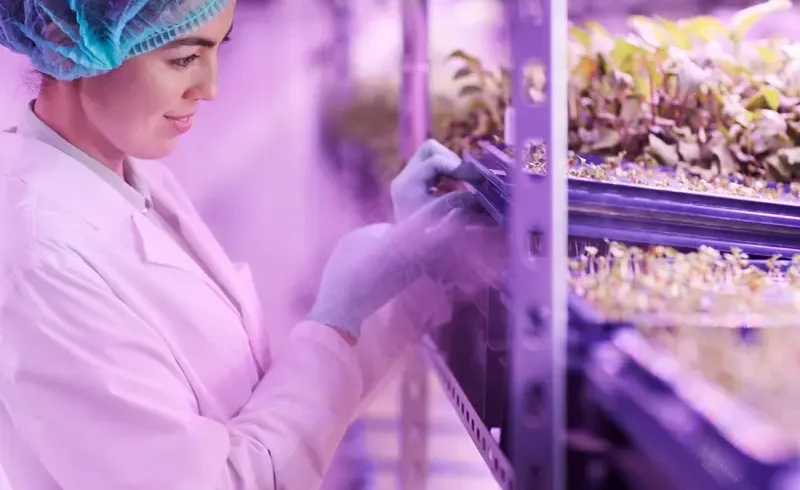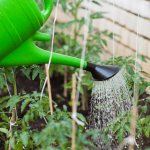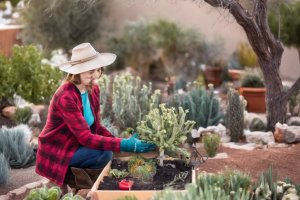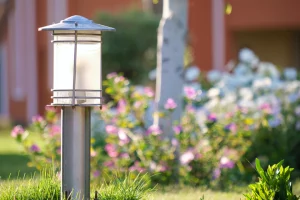
In gardening, new trends are as perennial as the plants themselves. The latest to sprout up is ‘Electroculture,' a method that claims to harness the Earth's “energy” to enhance plant growth. This technique involves wrapping wooden dowels in copper wire and placing them in the garden soil, promising increased yield, fewer pests, and prolonged bloom times.
However, popular gardening influencer Kevin (@epicgardening) has shed light on the trend, expressing skepticism about its effectiveness. In a recent video, Kevin presented his research on the topic, stating, “It's almost certainly not effective in any material way.” He further highlighted the need for more scientific research supporting the claims made by proponents of Electroculture.
Despite the skepticism, some gardeners attest to the success of the method. One user shared their experience, stating a “noticeable difference in the size of the stalks” after implementing Electroculture. Others, however, demand more concrete proof of its effectiveness, questioning various aspects of the technique, such as the wrapping direction of the copper and the placement of the rods.
While the debate continues, Kevin suggests a more natural approach to achieving a flourishing garden: “Cultivate an ecosystem. Nature has already given us all of the tools we need… a self-regulating system that you have the full power to cultivate and manage in your garden.” As with any new trend, time and more rigorous scientific research will determine the future of Electroculture in gardening. He emphasizes that harnessing the principles of nature can often yield more sustainable and long-lasting results than relying on unproven methods. By focusing on biodiversity, soil health, and natural cycles, gardeners can create thriving environments that mirror the balance found in the wild. Whether through traditional techniques or the solarpowered innovations of the future, the ultimate goal remains the same: a resilient, vibrant garden that works in harmony with the Earth.
Exploring the Origin of Electroculture
Electroculture isn't entirely a new concept. It has roots in early experiments conducted with electricity and plant growth. However, the simplified method of copper wires and wooden dowels is a recent development. The theory is that the copper wire acts as an antenna, picking up the Earth's energies and amplifying the “magnetism” in the plant's sap. This, in turn, is believed to re-energize the soil, leading to healthier and more robust plants.
Challenging the Theory
Kevin emphasizes that, despite the anecdotal evidence presented by some practitioners of electroculture, scientific research, and proven results still need to be improved. He points out that while there are studies showing benefits from using actual electricity in specific agricultural applications, the leap to the current trend of using simple copper-wrapped dowels in the backyard needs to be backed by solid evidence.
The Power of Natural Ecosystems
Kevin's preferred approach to gardening is to work with nature rather than trying to manipulate it with unproven methods. He advocates for cultivating a balanced and diverse ecosystem in the garden. This includes encouraging beneficial insects, rotating crops, and using compost to improve soil health. These methods, he argues, have proven effective over centuries of traditional gardening and are more likely to result in a healthy, productive garden than unproven fads like electro culture.
Public Opinion: A Mixed Bag
Public opinion on electroculture is divided. Some gardeners swear by the method, claiming noticeable plant health and yield improvements. Others are more skeptical, pointing out the lack of scientific evidence and the inconsistencies in the technique's application.
One commenter criticized the lack of clear instructions and standards, asking, “Which way do you wrap the copper? How deep do you place the rod? How many rods and how far do the effects go?” Without clear guidelines and scientific backing, electroculture may remain a controversial topic in gardening.
A Call for Further Research
If anything, the debate around electroculture underscores the need for more research into sustainable and effective gardening techniques. As our understanding of plant biology and ecology advances, new methods will emerge to help us grow our food more efficiently and sustainably. Gardeners might be better off sticking to tried-and-true methods and waiting for science to catch up with the latest trends.
Electroculture, as a concept, traces its roots back to the 18th century, where researchers started observing the influence of electricity on plant growth. However, it's worth noting that the practice has evolved over time and more research is required to fully understand its mechanisms and impacts.
Here are three sources that provide more information:
- The Electrical Properties of Plants – An early research paper discussing the influence of electrical properties on plant growth.
- Electroculture for crop enhancement by non-uniform electric fields: a review – A detailed review on ResearchGate discussing the concept and effects of electroculture.
- Electroculture: The effect of electric fields on plant growth – An article from Emerald Insight detailing the influence of electric fields on plant growth.

Lucy Davis is an enthusiastic and passionate young writer who has a knack for bringing stories to life. With a fresh perspective and an insatiable curiosity, she delves into the world of smart home technology, interior design, and lifestyle trends, keeping readers engaged and informed.















